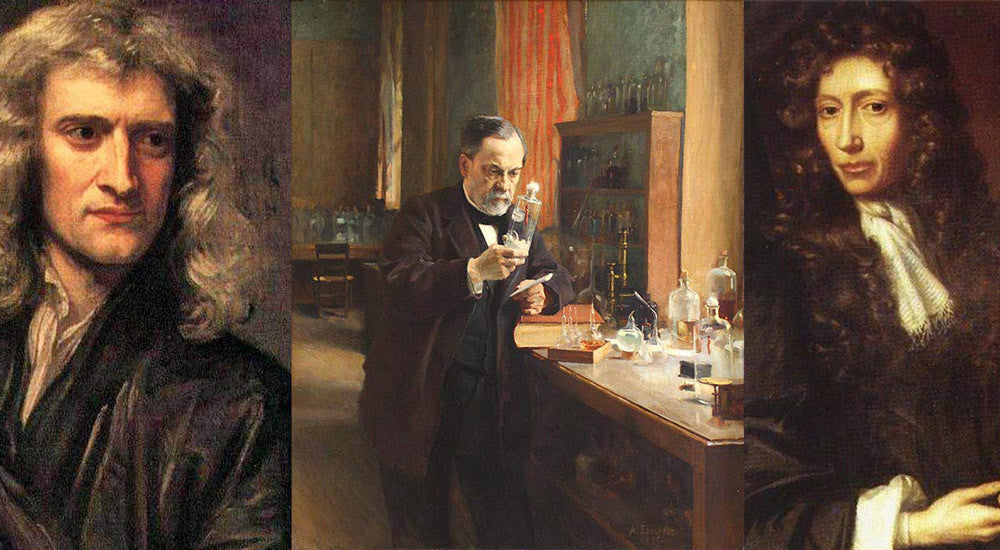Famous Scientists Who Believed in a Creator

Many outspoken evolutionists have tried to attack the credibility of creation science by claiming that any scientist who believes in the Bible and doesn’t agree with their evolutionary theory can’t be a “real” scientist. They choose to ignore the facts and disregard the growing number of highly renowned creation scientists who have conducted breakthrough research; who have earned Ph.D. degrees in various disciplines from reputable universities; who hold prestigious scientific positions; and who have published a myriad of distinguished articles and books. And if they were to simply take an honest look back through the corridors of time, they would have to acknowledge that so many prominent, well-known scientists of the past firmly believed in the Biblical account of creation!
Although there are hundreds of examples, we’ll just focus on three – Robert Boyle, Isaac Newton, and Louis Pasteur.
 Robert Boyle is known as the father of modern chemistry and considered to be the greatest physical scientist of his time. He discovered the scientific laws that show the relationship of gas pressure to temperature and volume. Boyle was a devoted student of the Bible and even sponsored a series of talks known as the “Boyle Lectures” which taught Christians about the facts for their faith.
Robert Boyle is known as the father of modern chemistry and considered to be the greatest physical scientist of his time. He discovered the scientific laws that show the relationship of gas pressure to temperature and volume. Boyle was a devoted student of the Bible and even sponsored a series of talks known as the “Boyle Lectures” which taught Christians about the facts for their faith.

Isaac Newton is undoubtedly known as one of the greatest scientists who ever lived. Although he is most famous for the discovery of gravity, he also formulated the three laws of universal motion and helped to develop the math known as calculus. His work laid the foundation for the great scientific law of energy conservation. Newton believed in the Creator and wrote papers defending creation and the Bible. He also believed that the world-wide flood, as described in Genesis, accounted for most of earth’s features.
In addition to his many accomplishments, Newton was also an astronomer, responsible for making the first reflecting telescope. Newton unmistakably witnessed the hand of God at work as he studied the movement of the planets. He said, “This most beautiful system of the sun, planets, and comets could only proceed from the council and dominion of an intelligent and powerful Being.”

Many people owe their lives to the work of physicist and chemist, Louis Pasteur, for identifying several harmful bacteria and creating vaccines to cure many diseases. Pasteur also challenged the notion of spontaneous generation – the idea that life can form from non-living objects. The ancient Greeks used to believe that mice could form from dirty rags, or that if you left out rotting meat, maggots would come to life. Although the maggot and mice theory was successfully challenged by Italian biologist, Francesco Redi in 1668, scientists continued to cling to the idea of spontaneous generation of microscopic creatures. In Pasture’s most famous experiment, he disproved spontaneous generation altogether. He did this by boiling broth to kill any microbes that might be living inside. He then placed the broth in a special glassware that allowed air to penetrate the broth while keeping the microbes out. As Pasteur expected, no microbes formed in the broth, proving that living microbes could only come from other microbes – that life only comes from life. Louis Pasteur firmly believed in creation and strongly opposed Darwin’s theory of spontaneous generation because it did not fit well with scientific evidence.
In Pasteur’s own words, “science brings men nearer to God.”
Here are a few more examples of great scientists of the past who were also creationists!

Leave a comment
Comments will be approved before showing up.



